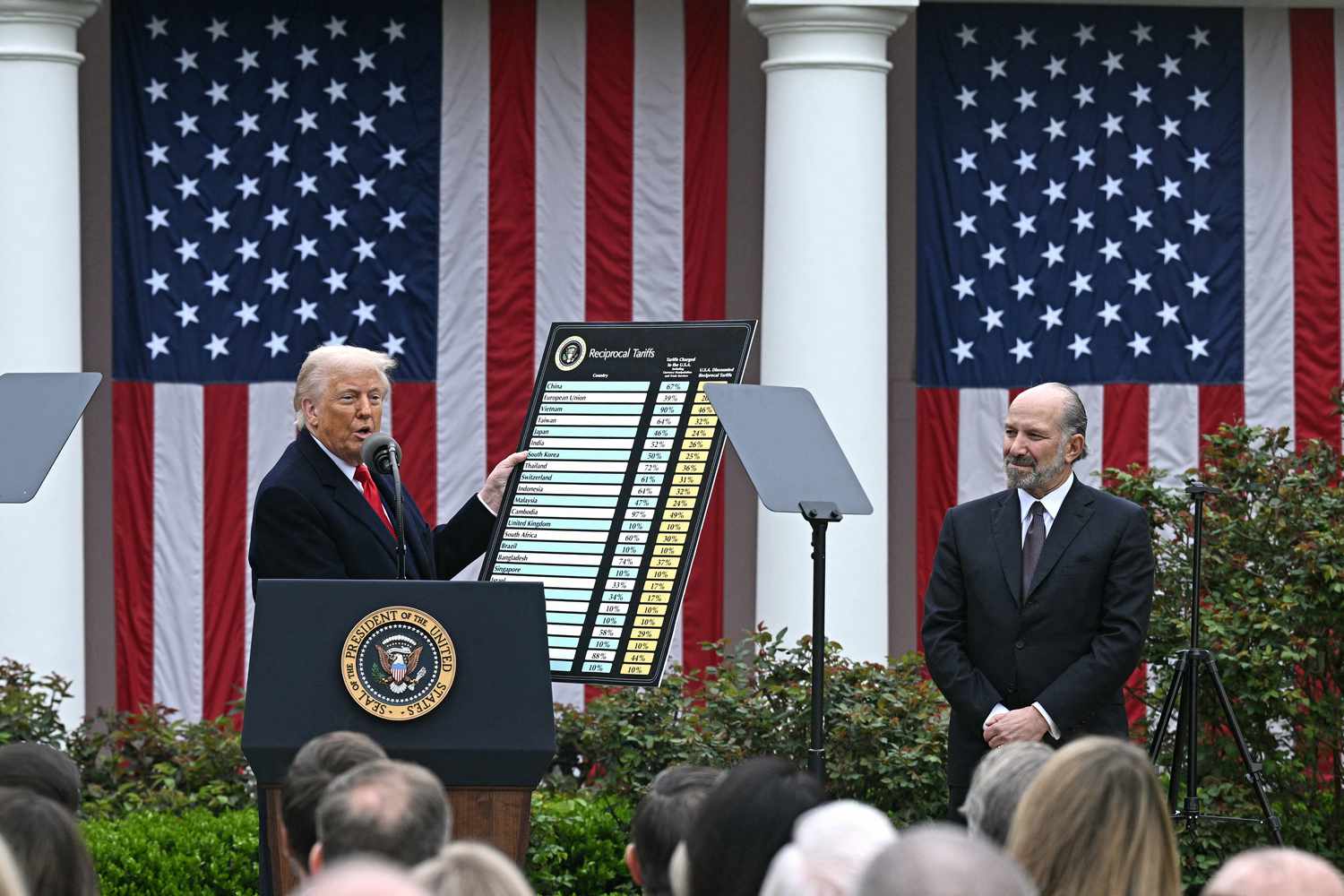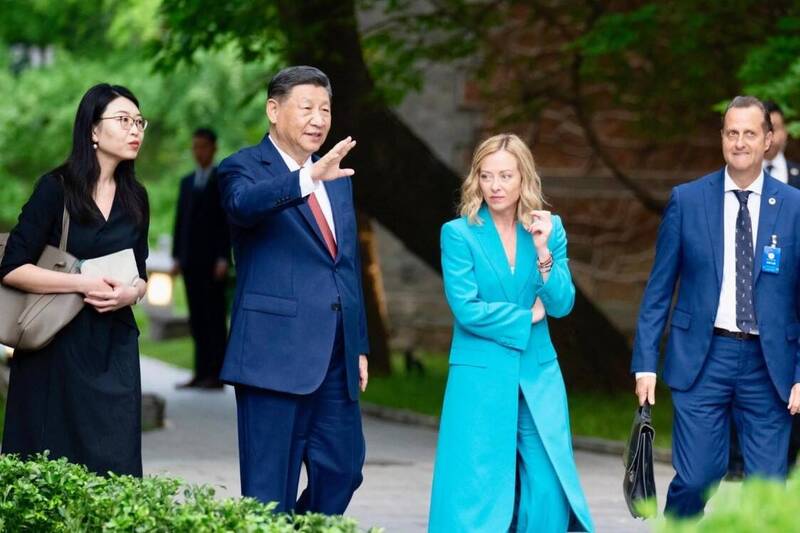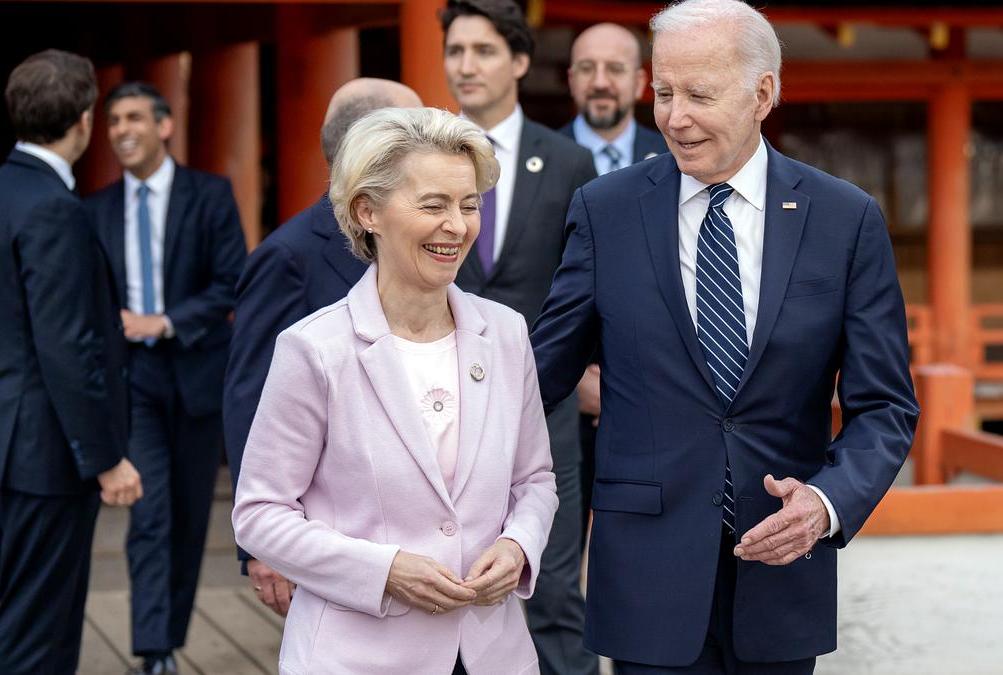
Dan Steinbock, Founder, Difference Group
Apr 05, 2025
After a decade of deglobalization and U.S. geopolitics, globalization is no longer at crossroads, but unraveling. The longer this plunge prevails, the greater will be its costs.

Sebastian Contin Trillo-Figueroa, Geopolitics Analyst in EU-Asia Relations and AsiaGlobal Fellow, The University of Hong Kong
Aug 30, 2024
The Italian Prime Minister’s visit to China offers key insights into the state of Sino-European relations, the evolution of de-risking strategies, and China’s response to this challenge.
Brian Wong, Assistant Professor in Philosophy and Fellow at Centre on Contemporary China and the World, HKU and Rhodes Scholar
Feb 05, 2024
Economic rejuvenation requires Beijing to pragmatically re-engage with the West, establishing clear commitment to China being a stable, certain, and transparent environment for foreign businesses. What would this re-engagement look like?
Dong Yifan, Assistant Research Fellow, China Institutes of Contemporary International Relations
Jan 17, 2024
China and Europe look forward to more stable relations. But transcending the European-style de-risking narrative will take some doing. As frictions arise, the strategic definitions and political wisdom of both sides will be tested.
Brian Wong, Assistant Professor in Philosophy and Fellow at Centre on Contemporary China and the World, HKU and Rhodes Scholar
Jan 02, 2024
The recent EU-China Summit marked a cautious step forward in their relationship, underlining a growing willingness to constructively engage. While substantive policy changes remain elusive, both sides acknowledged concerns and showed openness to dialogue, hinting at a potential path for future negotiations and trust-building.
Stephen Roach, Senior Fellow, Yale University
Jul 27, 2023
American politicians have a long history of mangling economic-policy debates. Some recognize reality, like when George H.W. Bush characterized so-called supply-side tax cuts as “voodoo economics.” But far too many to distort economic statistics and analysis to score political points – think of “Modern Monetary Theory” or “deficit scolds.”

Ma Xue, Associate Fellow, Institute of American Studies, China Institutes of Contemporary International Relations
Jul 26, 2023
Despite is softer sound when compared with decoupling, de-risking will not enhance U.S. national security. Unexpected consequences will follow as countries grow more cautious in choosing trading partners. Nor will de-risking enhance U.S. competitiveness. Rather, it will hinder innovation and suppress productivity.

Sebastian Contin Trillo-Figueroa, Geopolitics Analyst in EU-Asia Relations and AsiaGlobal Fellow, The University of Hong Kong
Jun 29, 2023
Redefining trade and economic relationships to achieve balance and prevent excessive dependence in strategic sectors has emerged as a key protectionist policy and geopolitical tool among major global powers. And while policies like dumping, dual circulation, security and development, or decoupling and de-risking, all share a common objective, each major power must determine its own mechanisms for course correction.

Wang Yufan, Assistant Research Fellow, Department of American Studies, CIIS
Jun 27, 2023
A change to softer rhetoric by the United States seems aimed at placating its domestic business community, but the ultimate objective of containing China hasn’t changed. U.S. Secretary of State Antony Blinken said there’s a big difference. We shall wait and see.